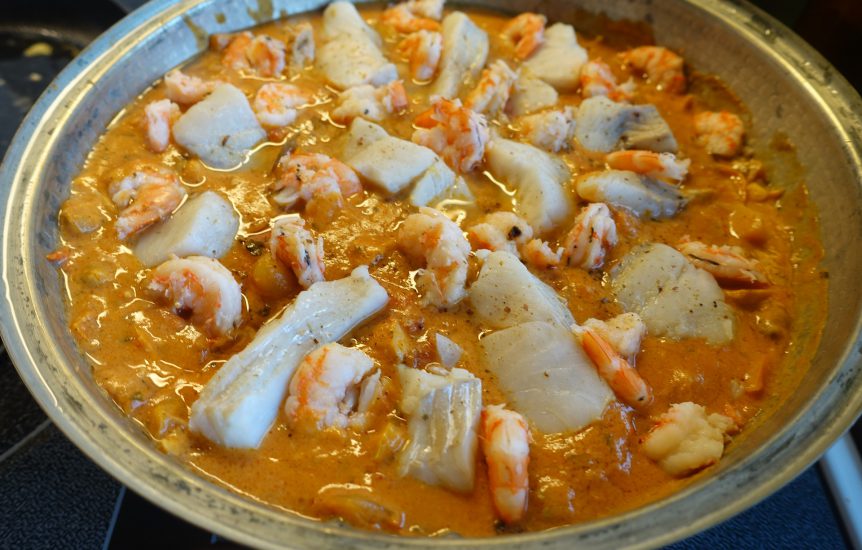- No products in the cart.
The fresh fish and tomato flavours present in the Algarve’s gastronomy during the summer also accompany typical dishes on winter days. These are combined with seasonal ingredients to become delicious comfort meals – “stewpan foods,” as they are called, which warm our soul and our palate during the shortest days and give us a warm hug during the longest nights of the winter season.
Of the many stews that characterise Algarvian cuisine in winter, Mar d’Estórias only mentions two today. By using typical products of the Algarve coastline, in combination with the seasonal ingredients – Caldeirada à Algarvia (fish stew Algarve style) and Octopus and Sweet Potato Cataplana.
 In the Algarve, there are several ways to make fish stew, but all contain the same secret – the cooking time. The truth is that an Algarve stew shouldn’t be made in a hurry so that the ingredients cook homogeneously and the broth thickens. The typical way to prepare a good fish stew is to lay the elements in layers so that everything is cooked at the same time.
In the Algarve, there are several ways to make fish stew, but all contain the same secret – the cooking time. The truth is that an Algarve stew shouldn’t be made in a hurry so that the ingredients cook homogeneously and the broth thickens. The typical way to prepare a good fish stew is to lay the elements in layers so that everything is cooked at the same time.
The cooking time of each ingredient is balanced by distributing them in layers, as well as, the fusion of flavours achieved by always keeping the lid on. The choice of fish depends on what is available, but many consider spotted dogfish essential in fish stew preparation: “a fish stew without a spotted dogfish is not a fish stew at all!”, mentions Amelia from Rogil.
Thus, the stew starts with pre-salted fish, onion and potato slices, tomato, pepper, olive oil and is seasoned with parsley and bay leaf. Rosinha from Barão de São João adds fresh oregano from her garden, after adding water and white wine to the pot. For Amelia it is important to add 3 or 4 sardines to the top to “give a special taste of the sea”. These details adopted by each family make this local, comforting dish that is sometimes savoured with slices of toasted bread underneath even more special.
The principle of the fish stew in preserving the flavour of the ingredients by cooking them with the lid on is also used in the cataplana. The octopus cataplana with sweet potatoes is exactly that – an intense, but balanced aroma of salty octopus with the sweetness of freshly picked sweet potatoes. Amélia, from Rogil, explains that with olive oil, onion, chopped garlic, bay leaf, tomato and pepper, you can cook a delicious octopus in the cataplana. Then you only need to add the famous Rogil sweet potato to it with a bit of water and “be patient and wait for everything to cook”.
The result of these two dishes is like a warm blanket in a rigorous winter; sea-flavored broths that cuddle the stomach and enhance the characteristic aromas of Algarvian cuisine.

